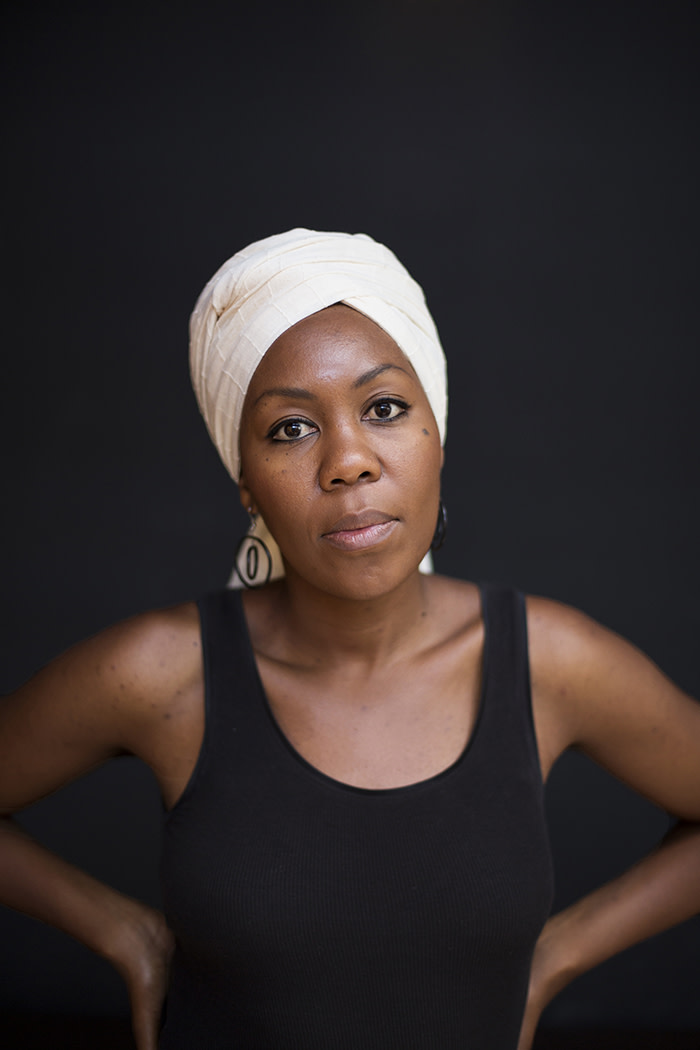Writer Sisonke Msimang on the positive power of South Africa’s anger

Roula Khalaf, Editor of the FT, selects her favourite stories in this weekly newsletter.
At a literary festival early this year, I was asked to speak about home and belonging. I talked about my upbringing, raised in exile as the child of South African revolutionaries. I recounted the excitement of my return to South Africa when Nelson Mandela was released from prison in 1990, and my joy at having an opportunity to make a life in the country I had longed for. I then shared with the audience a few stories about my latest adventures — having recently moved to my partner’s hometown in Australia.
During the question-and-answer session, a woman asked me how it felt to be exiled once again. She prefaced her question with a remark about how sorry she was at what had become of South Africa. Over the course of the year, I encountered many like her: well-meaning, earnest — and thoroughly convinced that the story of South Africa is one of failure and tragedy.
I was taken aback but, because she was speaking with sincerity and kindness, tried my best to hide my irritation. I explained that I am not in exile; I can go home whenever I choose because I am now a citizen of a democratic country. Exile for my family ended when South Africa became an independent country in 1994. I then made the point that although there are many aspects of political life in South Africa that concern me, I couldn’t accept the premise of her question — that my country represents a tragedy, that hope lies in the past tense.
Afterwards, the woman approached me to clarify. She asked, pointedly, why I was living in Australia if South Africa was a successful society. The very fact that I was here, she asserted, was evidence of my country’s failure.
This got to the heart of the matter. When you are the citizen of a wealthy country such as Australia, you can move for whatever mundane reason you choose. When you are from a place like South Africa, you do not leave, you flee.
Written into that earnest — and then angry — woman’s question was the idea that South Africa is in crisis. Her assumption was heartbreaking in its certainty. But, as I travelled to the US and Canada and across Australia this year, I engaged in many versions of this exchange. I came to see that, when they measure the distance between their hopes for my country and what it has become, many of those who supported the anti-apartheid movement determine that we have failed.
Twenty-five years ago, when the African National Congress (ANC) committed black South Africans to forgiving their white compatriots, the story of South Africa was set in stone. South Africa’s failure or success would always be seen through the prism of Mandela’s vision of forgiveness and his commitment to personal integrity.
A new generation of South Africans is asking tougher questions about reconciliation and justice, and is beginning to challenge the cronyism that has strangled the ANC. Their anger is seen by many outside the country as an indication that South Africa is falling apart.
What is less evident is the extent to which this anger has served as a constructive force. It was citizen anger that drove a campaign that led to the resignation of President Jacob Zuma. It has been citizen anger that has transformed the university sector and made campuses more equitable. And it is citizen anger that has propelled a growing movement to end gender-based violence through collective organising that predates #MeToo.
Yet international coverage of South Africa this year has focused primarily on land reform and the related fringe claims that a “white genocide” is unfolding. Concern about South Africa’s potential to go the way of Zimbabwe — that bogeyman of western fears about African self-determination — has been voiced by politicians in the US and Australia. It is no surprise then that the earnest woman in the audience was offering me her sympathies: if you only look at these elements of our story, South Africa certainly cuts a tragic figure.
If there is any tragedy in South Africa perhaps it is this. The country is home to a vibrant media sector, a robust and independent court system and a cacophonous civic sector. These players do not see themselves as part of a tragedy. Instead, they have recurring roles in an ongoing drama that is chaotic, complicated and sometimes comedic but always utterly resistant to a singular narrative.
Sisonke Msimang’s ‘Always Another Country: A Memoir of Exile and Home’ is published by World Editions
Follow @FTMag on Twitter to find out about our latest stories first. Subscribe to FT Life on YouTube for the latest FT Weekend videos

Comments